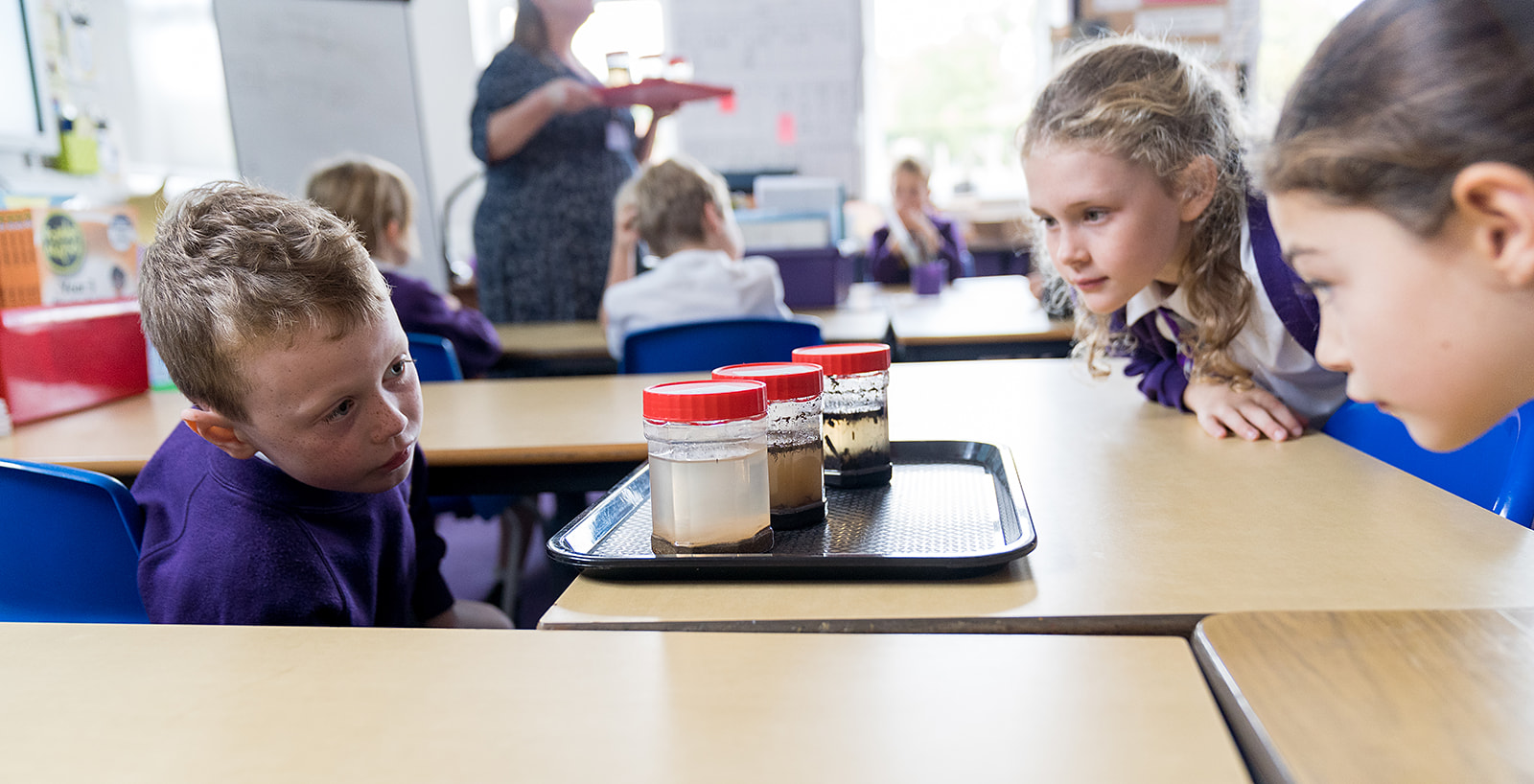Science

Intent
First-hand experiences are one of the most powerful learning tools we have available to us as teachers. Our science curriculum uses this approach to inspire, guide and motivate pupils to achieve their best, have an enquiring mind and develop their scientific knowledge of the world around them. Science at St Cuthbert Mayne helps foster the awe and wonder of the natural phenomena of the world around us and allow us to fully appreciate the complexity of God’s creation.
The National Curriculum
The National Curriculum (2014) states that:
"A high-quality science education provides the foundations for understanding the world through the specific disciplines of biology, chemistry and physics. Science has changed our lives and is vital to the world’s future prosperity, and all pupils should be taught essential aspects of the knowledge, methods, processes and uses of science. Through building up a body of key foundational knowledge and concepts, pupils should be encouraged to recognise the power of rational explanation and develop a sense of excitement and curiosity about natural phenomena. They should be encouraged to understand how science can be used to explain what is occurring, predict how things will behave, and analyse causes.”
Aims
The National Curriculum for Science aims to ensure that all pupils:
- Develop scientific knowledge and conceptual understanding through the specific disciplines of biology, chemistry and physics.
- Develop understanding of the nature, processes and methods of science through different types of science enquiries that help them to answer scientific questions about the world around them.
- Are equipped with the scientific knowledge required to understand the uses and implications of science, today and for the future.
Implementation
At St Cuthbert Mayne, Science is taught following the aims and content of the National Curriculum. Our Science teaching provides children with experiences and opportunities to work scientifically in order to develop their scientific understanding. The children are encouraged to be curious and ask questions about what they notice. They are helped to develop their understanding of scientific ideas by using different types of scientific enquiry to answer their own questions, including observing changes over a period of time, noticing patterns, grouping and classifying things, carrying out simple comparative tests, and finding things out using for example, books, photographs and videos. We encourage our children to use scientific language to talk about what they have found out and communicate and record their ideas and findings in a variety of ways. We use both our indoor and outdoor environment to support the teaching and learning of Science.
Our Science Curriculum
EYFS
Understanding the world:
- Children know about similarities and differences in relation to places, objects, materials and living things.
- They talk about the features of their own immediate environment and how environments might vary from one another.
- They make observations of animals and plants and explain why some things occur, and talk about changes.
Topics covered:
- Ourselves
- Dinosaurs
- Mini beasts
- Plants
- Floating and sinking
- States of matter
Years 1 and 2
Working scientifically During years 1 and 2, pupils should be taught to use the following practical scientific methods, processes and skills through the teaching of the programme of study content:
- Asking simple questions and recognising that they can be answered in different ways.
- Observing closely, using simple equipment. Performing simple tests.
- Identifying and classifying. Using their observations and ideas to suggest answers to questions.
- Gathering and recording data to help in answering questions.
Topics covered:
- Plants
- Animals, including humans
- Everyday materials
- Seasonal changes
- Living things in their habitats
Years 3 and 4
Working scientifically
During years 3 and 4, pupils should be taught to use the following practical scientific methods, processes and skills through the teaching of the programme of study content:
- Asking relevant questions and using different types of scientific enquiries to answer them.
- Setting up simple practical enquiries.
- Comparative and fair tests.
- Making systematic and careful observations and, where appropriate, taking accurate. measurements using standard units, using a range of equipment, including thermometers and data loggers.
- Gathering, recording, classifying and presenting data in a variety of ways to help in answering questions.
- Recording findings using simple scientific language, drawings, labelled diagrams, keys, bar charts, and tables. reporting on findings from enquiries, including oral and written explanations, displays or presentations of results and conclusions.
- Using results to draw simple conclusions, make predictions for new values, suggest improvements and raise further questions.
- Identifying differences, similarities or changes related to simple scientific ideas and processes.
- Using straightforward scientific evidence to answer questions or to support their findings.
Topics covered:
- Plants Animals, including humans
- Rocks
- Light
- Forces and magnets
- Sound
- Electricity
- States of Matter
- Habitats
Years 5 and 6
Working scientifically
During years 5 and 6, pupils should be taught to use the following practical scientific methods, processes and skills through the teaching of the programme of study content:
- Planning different types of scientific enquiries to answer questions, including recognising and controlling variables where necessary.
- Taking measurements, using a range of scientific equipment, with increasing accuracy and precision, taking repeat readings when appropriate.
- Recording data and results of increasing complexity using scientific diagrams and labels, classification keys, tables, scatter graphs, bar and line graphs.
- Using test results to make predictions to set up further comparative and fair tests.
- Reporting and presenting findings from enquiries, including conclusions, causal relationships and explanations of and degree of trust in results, in oral and written forms such as displays and other presentations.
- Identifying scientific evidence that has been used to support or refute ideas or arguments.
Topics covered
- Living things and their habitats
- Animals, including humans
- Materials
- Earth and space
- Forces
- Light
- Evolution and Inheritance
Enrichment
We hold a Science Week each year where we aim to stimulate and support science. Last year, we met a young scientist who told us about her journey to become a scientist. We learnt about her important work as a meteorologist and her passion for helping people through her work as a scientist. As part of this week, we sent Year 6 to Westminster Abbey where they learnt about Charles Darwin and his theories as well as learning about scientists buried and remembered in the Abbey. We also held Open Science lessons where a mixture of parents, siblings and grandparents were able to join in with the learning.
Year 5 attended The Big Bang Fair South East at the South of England Show Ground which was an extravaganza of shows, workshops and displays for students. The children had the opportunity to enjoy the hands-on and real life application of science.
Once again, we took part in the Science Challenge at Glebelands School, where we entered teams of budding scientists across KS1 and KS2

